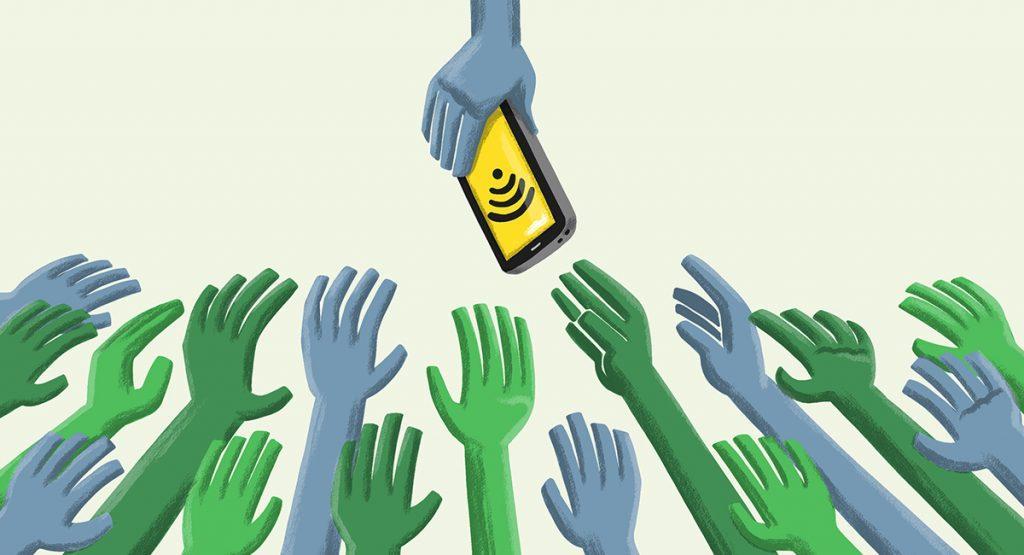Online social networks are increasingly becoming a vital part of our everyday life as they have transformed how we interact with each other and go about our everyday lives. These networks are providing a platform for current events, digital activism and comedic conversations. These social platforms also aid in the creation of networks and formation of new alliances with people who share common interests, ideals and beliefs. Many people have been able to grow their careers through these networks. These opportunities and positive outcomes created by social networks are mostly attainable by having a presence and engaging with other people on these platforms. This makes it necessary to ensure that there is equal participation online for the purposes of online inclusivity and ensuring that everyone can enjoy the positive aspects of online social networks. Various studies have demonstrated the huge disparity that exists between the level of women and men‟s participation on online platforms (Herring, 2000; Broadhurst, 1993). According to these studies, there is a low level of online participation among women, despite the fact that women may be accessing these platforms just as much as men do.
While there are institutional and social influences to blame for this disparity, this digital divide is largely attributed to the online harassment that women experience. This was acknowledged in a joint statement by the United Nations Special Rapporteurs on Violence against Women and Freedom of Expression that highlighted how the “online participation of women journalists, activists, human rights defenders, activists, and artists and other public figures and private persons” is disrupted by violence and abuse against women online. With the increased access to technology and the growth of social networks connecting people from all over the world, there is a growing phenomenon known as the online disinhibition effect. Online disinhibition effect is characterized by the tendency of people to behave online in ways that they would not when having in- person interactions. This has in turn resulted in online incivility which has brought with it vices such as online harassment, which is becoming increasingly rampant.
There has been increased awareness of the online harassment women face with the aim of bursting the bubble created by the online disinhibition effect and making platform users understand the harm caused by their words. One of the ways of creating awareness has been through hashtags on twitter such as the #mencallmethings which provided a platform for women to recount their personal experiences of online harassment and #morethanmean which was used to raise awareness about online harassment of women in sport journalism. These hashtags succeeded in showing just how much harassment women go through online.
Harassment of women online is partly attributed to the patriarchal political systems that exist online. These are the same systems that exist in in-person environments and become replicated and amplified online due to the amount of people with access to these platforms and the loosened inhibitions that come with online anonymity. Some societies such as African societies are still largely patriarchal and therefore women speaking up in public is viewed as going against the traditional boundaries, especially if they challenge patriarchal beliefs. Women who dare to challenge patriarchal beliefs are subjected to online harassment. I have personally observed this phenomenon among the Kenyan demographic on twitter where women who identify as feminists and publicly tweet about their feminist beliefs are insulted and even threatened. Hash tags such as #TakeBackTheTech, #ImagineAFeministInternet, #LiesToldByFemales, #IHateFemalesWho and #ThatsWhatSlutsDo have all been used in the past to spread misogynistic and sexist tweets and all began as a response to a particular opinion or campaign by a woman on Twitter.
The reality of many women is that they find themselves changing their behavior when they experience harassment such as “wearing less provocatively‟ and this translates to online behavior too as they become passive internet users so as to avoid online harassment. Women are choosing not to comment on online discussions even though they may be equally if not more interested and knowledgeable in the topic at hand. There is an aspect of intersectionality in this as Muslim women and generally women from marginalized communities are even more passive in their online participation. This is because they are viewed by some people as representing the views of an entire community and therefore for fear of being targeted if they say the “wrong‟ thing, they choose not to participate online. This also goes for women who are public figures such as women in politics.
The ripple effect of online harassment is clear from how low women online participation is affecting other aspects of the society. The low participation of women online affects the discourse on issues as the opinions seen or heard online fail to accurately reflect the actual views held by people. The freedom of expression of women is limited if they cannot freely express their views without fear of harassment. It also affects and stifles digital feminist activism as it poses a barrier to feminist voices. Online platforms have offered a voice to activists in various topics such as climate change but is still largely unwelcoming to digital feminist activists.
Online platforms such as Twitter can contribute to the achievement of online social equality by enforcing stricter rules on the platform users such as banning the use of hashtags or language that promote incivility against women. More organizations should also host online discussion forums targeted specifically at women so as to encourage them to participate in important discussions online. For instance Siasa Place can host online political discussions for women only, to encourage them to participate in political discussions. It is clear that online social equality can only be achieved when both men and women are able to occupy online spaces and to influence and speak within that space without fear of harassment.
Written By Edna Asesa | Email: ednaasesa@gmail.com



